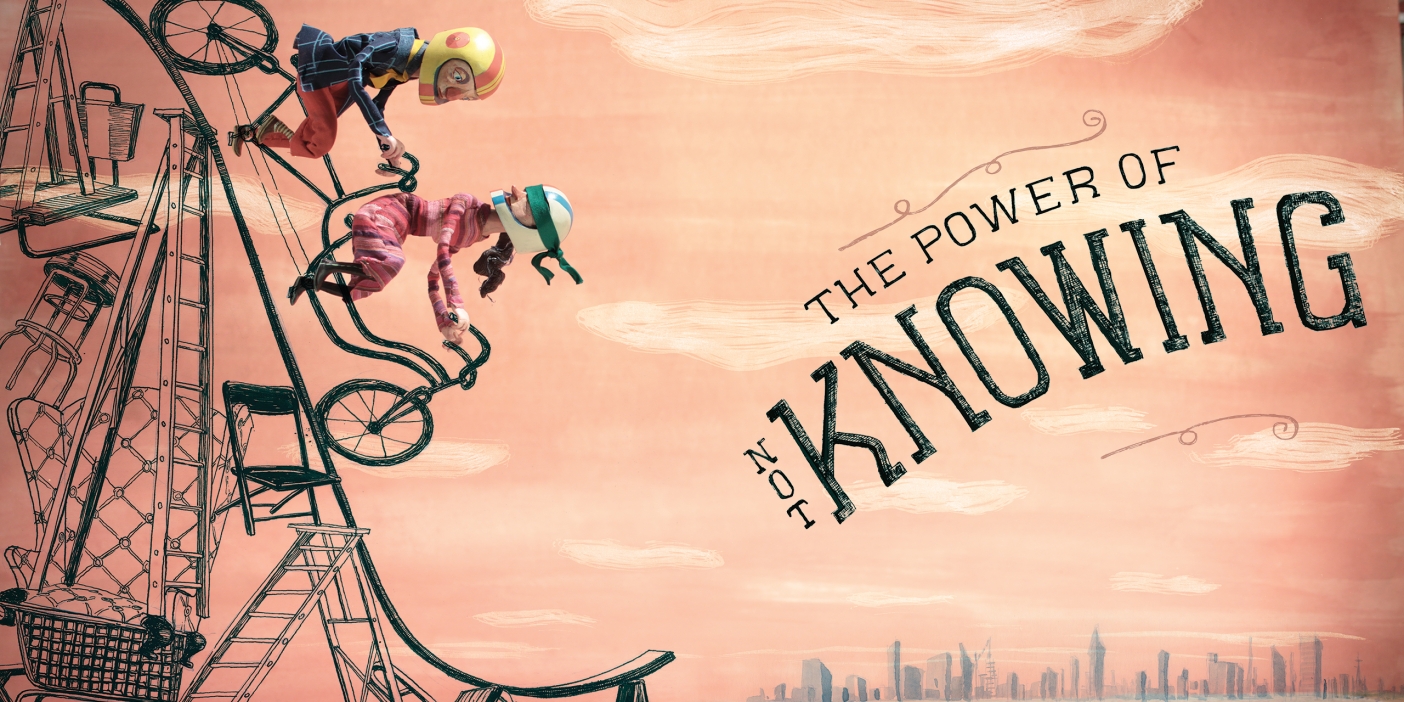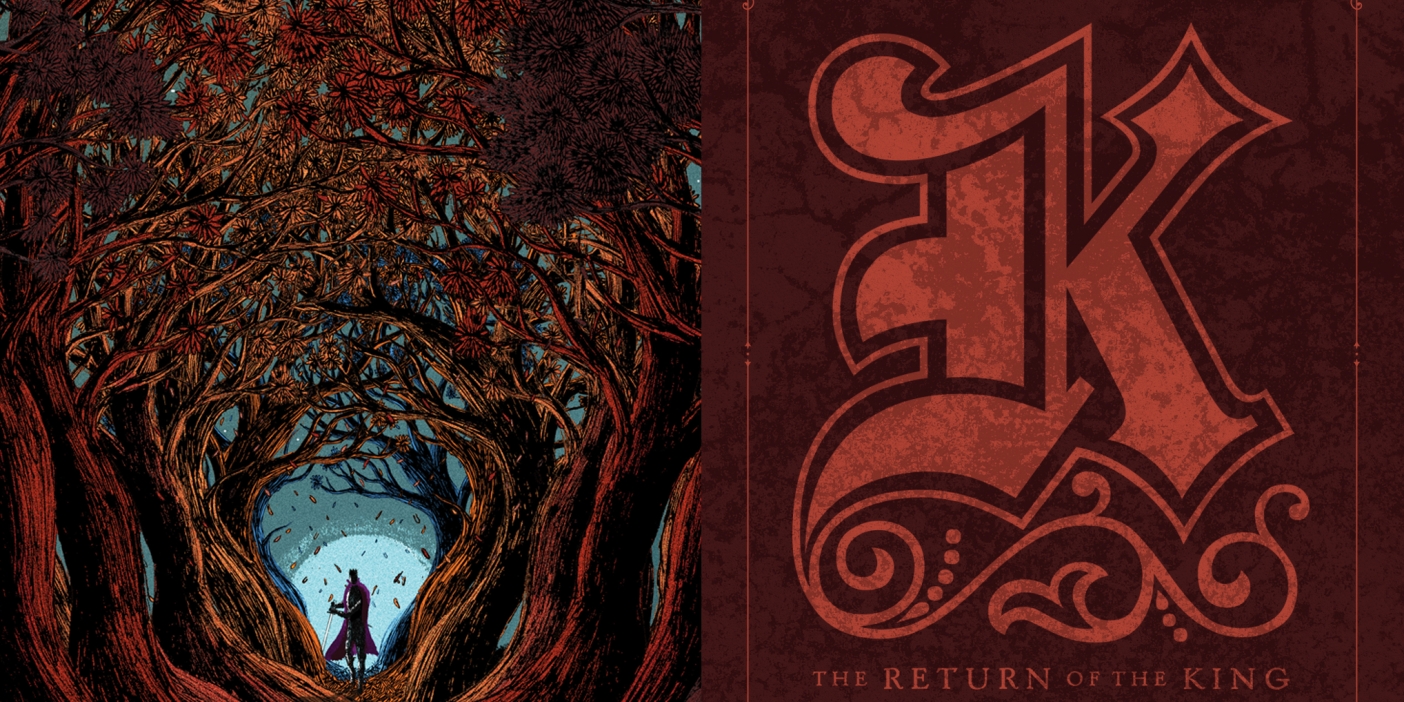Princesses, Superheroes, and You
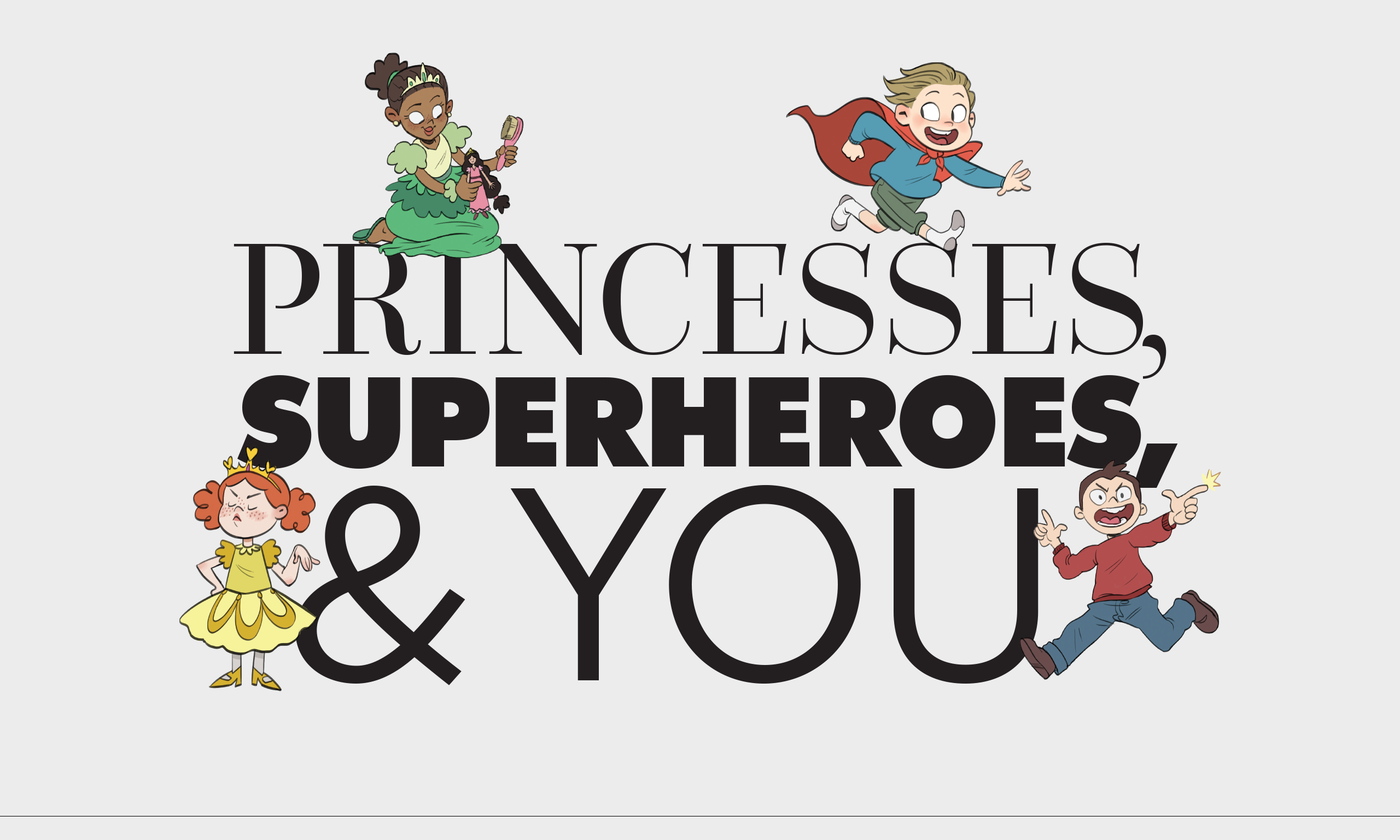
Exploring the fantasy of mythical role models and the reality of our royal identity.
By Sarah M. Coyne in the Fall 2016 Issue
Illustrated by Kendall T. Hale (BFA ’14)
I study the effect of media on children and families and recently finished a study on the effects of the superhero and princess cultures on children. If you have ever been around a preschool-age child, you know that both superheroes and princesses are very popular with this age group. In fact, many children this age say that they would like to be a superhero or a princess when they grow up. I’ve pondered on how being a superhero or a princess might relate to our royal identity and what this might mean for the way we see ourselves in an eternal light.
Superheroes and the Ideal Man
From Superman to Spider-Man to Marvel’s Avengers, superheroes have been featured in some of the most popular movies of all time. Why are superheroes so popular today? Well, superheroes are pretty cool. Wouldn’t we all like to imagine ourselves being able to fly faster than a speeding bullet, see through buildings, or be almost invincible?
And yet, cool as superheroes are, they are not always the greatest role models in how they use power. First of all, superheroes tend to embody a stereotypical hypermasculinization: They are often brash, arrogant, angry, and aggressive, and they take a lot of risks. Some of them misunderstand or abuse their power. It seems that to be a superhero, or even to be a man in popular culture today, one needs to embody negative behaviors.
In a recent BYU devotional Bishop Gérald Caussé spoke out on the troubling portrayal of superheroes in the media:
The world values the cult of the invincible. Superheroes, from Batman to Superman, abound in our media. This ideology leads to dangerous behavior. We see people who want to hide their problems under the appearance of strength through boasting, aggressiveness, or abusive behaviors. Some are so obsessed with outperforming others that they turn to drugs or other stimulants in order to do so. Still others lose themselves in egotism and self-admiration. These forms of pride lead to disappointment, ineffectiveness, or worse.¹
In this one-size-fits-all mentality for our young boys and men, weakness is not tolerated, and humility, empathy, emotional connection, and softness are not valued. Some of the most damaging words you can say to a young boy who shows softness or emotional pain is “be a man” or “man up.” The hypermasculinization we so value in the superhero culture is a complete distortion and takes us away from understanding our royal identity as children of God.

Another common fantasy of the superhero culture is called the muscular ideal. Superheroes in popular media tend to look very similar to each other: they are extremely muscular and have broad shoulders and small waists. Research suggests that exposure to these types of images and media models is related to body dissatisfaction and depression in men.
We almost never talk to men about their body image. There are quite a few conference talks on this topic directed to women, but for some reason we ignore the men. But we know that “the spirit and the body are the soul of man” (D&C 88:15) and that the body is a gift from Heavenly Father. One of Satan’s primary attacks on men’s self-esteem is to diminish their respect for their body. He tries to make men feel they aren’t good enough or don’t measure up.
Sister Susan W. Tanner (BA ’84), former Young Women general president, said:
[Satan] seduces some to despise their bodies; others he tempts to worship their bodies. In either case, he entices the world to regard the body merely as an object. In the face of so many satanic falsehoods about the body, I want to raise my voice today in support of the sanctity of the body. I testify that the body is a gift to be treated with gratitude and respect.²
Men should not worry about trying to conform to the muscular ideal we see in the superhero culture. The body is not merely an object meant to be honed to ultimate perfection. When I picture Christ, I picture the ultimate superhero—but I do not picture Him as being particularly muscular. We are created in the express image of our Heavenly Father and are His royal heirs. That means our bodies look like His. In the eternities, I cannot imagine everyone walking around looking like they are on steroids. Instead, I imagine individuals of different shapes.
Russell M. Nelson, President of the Quorum of the Twelve Apostles, said:
Your body, whatever its natural gifts, is a magnificent creation of God [see Ps. 8:3–5; see also Heb. 2:7, 9]. It is a tabernacle of flesh—a temple for your spirit [see 1 Cor. 6:19]. A study of your body attests to its divine design.³
Men, do not buy into the fantasy of the superhero culture when you think about the profound gift of your body from your Heavenly Father. Your acceptance of your body is a key part in understanding your royal identity.
The Ultimate Villain and the Ultimate Hero
One of my favorite superhero stories is the animated film The Incredibles. In the movie is a little boy named Buddy who wants more than anything to be a superhero, but he doesn’t have any superhero powers. He becomes angry and decides to devote his life to destroying the real superheroes as a way to prove how much smarter and more powerful he is. Buddy changes his name to Syndrome and ends up becoming a villain, even though he started out wanting to help others.
There is a very real villain in the story of our lives. Like Buddy, he started out with a different name, Lucifer. The irony is that Satan could have become powerful if he would have trusted in his Father in Heaven’s plan. Instead, he was too impatient and power hungry, which ultimately led to his undoing.
Satan is more powerful than any villain we see in superhero stories, but, in our story, we know the ending of the ultimate battle between good and evil, the final showdown. Christ will win the day. Good will conquer evil.
Batman, Captain America, Iron Man, and Spider-Man all have excellent redeeming qualities, yet they pale in comparison with those of the ultimate superhero: Jesus Christ, who was both powerful and meek.
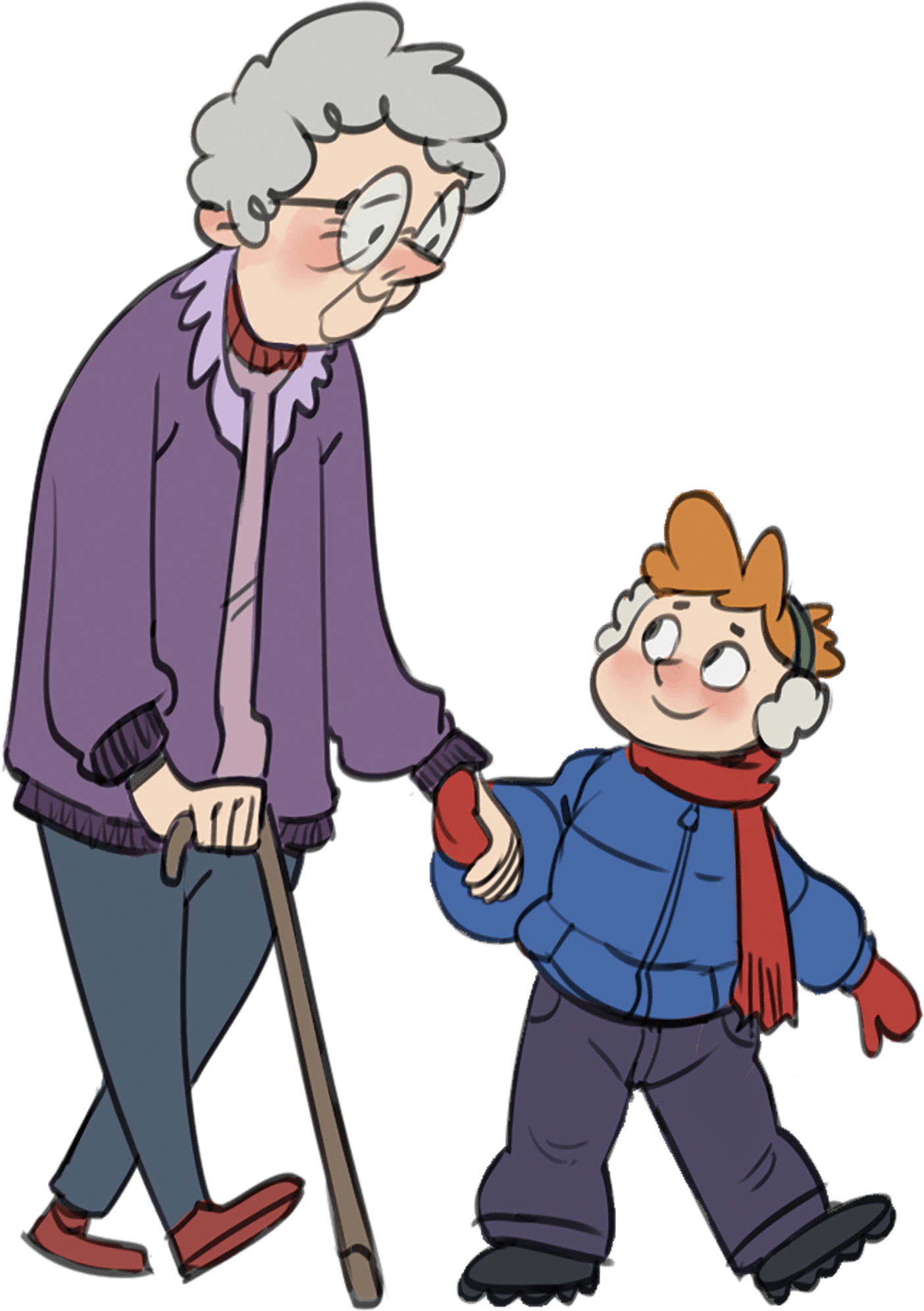
A real superhero is empathetic. He is someone who is “willing to mourn with those that mourn . . . and comfort those that stand in need of comfort” (Mosiah 18:9). He is soft, gentle, tender, and kind. He understands and uses his emotions to bless the lives of others. We see none of the arrogance or brashness portrayed in the media; instead, we see humility and an understanding and acceptance of one’s own weaknesses.
A true superhero is a defender. I study bullying in childhood, and there is a small group of children who are termed “defenders.” When these children see someone picking on another, they are willing to stand up for the victim, to get a teacher, and to tell the bully to stand down. Defending someone against the schoolyard bully takes a unique type of courage.
I once saw a news article about some young defenders from the Bridgewater, Massachusetts, area. Danny Keefe, age 6, suffered a severe brain hemorrhage after birth and has some serious developmental delays, including some speech problems. He likes to wear a jacket, a tie, and a fedora to school every day. Danny is also the official “water coach” for the peewee football league Bridgewater Badgers, composed of a group of fifth-grade boys.
When some of the kids at school started picking on Danny for the way that he spoke and for his choice in outfits, the boys on the football team took action. The quarterback of the football team later said:
We thought that we would all have a day to dress up like Danny. We thought we would all come to school like Danny and sponsor Danny to show Danny that we love him—that we love him very much.⁴
These boys are superheroes—better, in fact, than many of the superheroes we see in the media. They were able to defend someone who was being hurt without resorting to aggression themselves.
In our recent study on superheroes and defending in preschool boys, we found that boys did not pick up the defending themes in superhero media. Young fans of superheroes were no more likely to be defenders than their peers who were less into the superhero culture. And they were more aggressive than their peers.

A better way to learn how to become a defender would be to study and emulate Jesus Christ—the ultimate defender of mankind. One of my favorite stories in the New Testament is that of the woman caught in adultery:
And the scribes and Pharisees brought unto him a woman taken in adultery; and when they had set her in the midst,
They say unto him, Master, this woman was taken in adultery, in the very act.
This was a serious crime, and there was no doubt that she was guilty. The law at the time allowed for her to be stoned to death. She must have been so afraid.
But Jesus stooped down, and with his finger wrote on the ground, as though he heard them not.
The scribes and Pharisees continued to press Him, and in His kind and wise manner He said, “He that is without sin among you, let him first cast a stone at her.”
By His very example Christ defended the woman, and the crowds, “being convicted by their own conscience,” left her alone and departed.
Christ then asked:
Woman, where are those thine accusers? hath no man condemned thee?
She said, No man, Lord. And Jesus said unto her, Neither do I condemn thee: go, and sin no more. [John 8:3–11]
As a mother, I want so badly for my three boys to understand what it means to be a true superhero: To be kind, honest, and true. To defend those who cannot defend themselves. To honor the priesthood and to be righteous defenders of Christ’s authority. To understand where true power comes from and to respect the true source. To each love and respect his future wife and to be kind, gentle, and understanding fathers. To serve those around them and to show integrity for their values even as the world tries to knock them down.
My greatest hope for my boys is that they understand their royal identities as sons of God and live their lives in a way that would make Him proud.
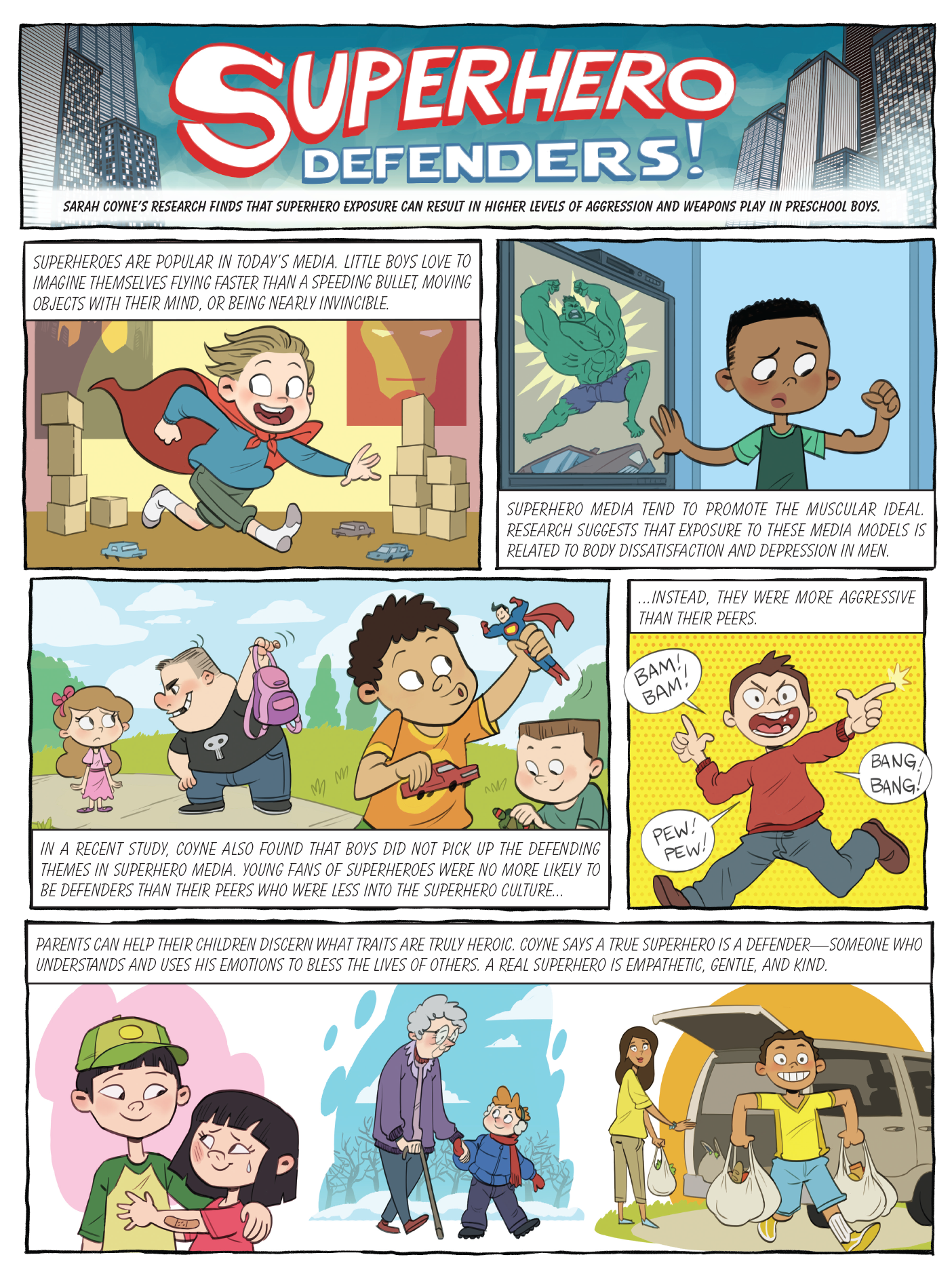
A Royal Obsession
Now on to the princesses.
We are obsessed today with royalty. The Disney Princess line earns around $3 billion each year.⁵ Our own research suggests that 96 percent of preschool girls view Disney princess media and 82 percent play with Disney princess toys.⁶
I did my graduate work in England and then worked there for a few years before we moved to Utah. While there, I watched people become obsessed when Prince William married Kate Middleton and then become even more so when she gave birth first to Prince George and then to Princess Charlotte. We see this same level of obsession in the media world.
While our family lived in England, we visited an exhibit at the Tower of London that displays the crown jewels and the royal scepter that Queen Elizabeth was given at her coronation. I remember being enchanted by their beauty. I reflected on what an amazing experience that must have been for Elizabeth to have had that crown put on her head and the scepter placed in her hand as she became the queen of England.
My name, Sarah, actually means “princess” in Hebrew. Until I turned 30 and decided I needed to grow up a little, my email address began with “princess-sarah.” So I have been thinking about this princess thing for a very long time, and I always felt like my name represented something important and something special. However, you don’t need to be named princess to actually be one.
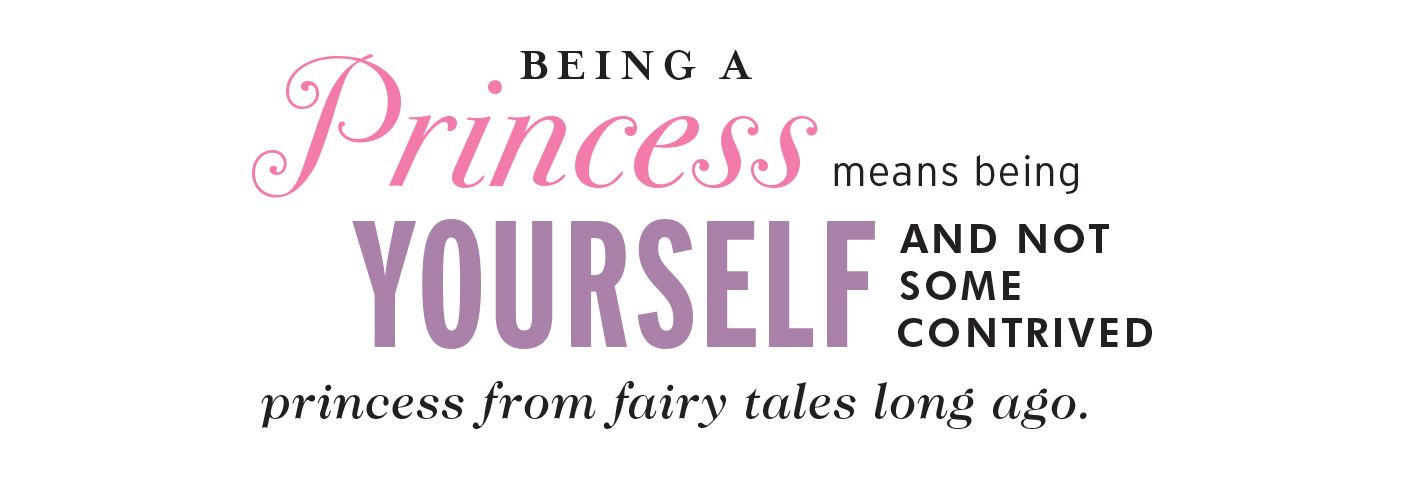
One of my favorite stories is from the film A Little Princess. If you remember, this was the story of Sara Crewe, a rich little girl who ended up losing her father and living in an orphanage. One day the headmistress was being particularly mean to Sara and told her that she was not a princess anymore. Sara stood up straight and tall and told her:
I am a princess. All girls are! Even if they live in tiny old attics, even if they dress in rags, even if they aren’t pretty or smart or young, they’re still princesses.⁷
One reason I think we are so interested in royalty is because it speaks, in part, to the royalty within us. Each of us is a very real prince or princess in our own right—the child of a loving heavenly king and queen. No matter our circumstances in life, we are princesses or princes of a royal family, destined to become queens and kings someday.
Speaking to the young women, President Dieter F. Uchtdorf, Second Counselor in the First Presidency, said: “You are truly royal spirit daughters of Almighty God. You are princesses, destined to become queens. Your own wondrous story has already begun. Your ‘once upon a time’ is now.”⁸
Each one of us, if we are righteous and endure to the end, will one day receive not a crown and scepter of jewels but, as it says in the scriptures, “a crown of eternal life” (D&C 20:14).
Someday My Prince Will Come
In princess stories a common plot involves the princess finding true love. A prince rides up on a white horse to sweep the princess off her feet. He seems perfect in every way, and it is love at first sight. They kiss and ride off into a beautiful sunset together, ready to live happily ever after.
Though beautiful, this storyline is misleading in a number of ways. First of all, I believe that the youth of today are too concerned about finding their prince and expecting him to be perfect.
Elder David A. Bednar of the Quorum of the Twelve Apostles said:
As we visit with young adults all over the Church, often they will ask, “Well, what are the characteristics I should look for in a future spouse?” as though they have some checklist of “I need to find someone who has these three or four or five things.” . . .
The list is not for evaluating someone else. The list is for you . . . and what . . . you need to become. And so if there are three primary characteristics that [you] hope to find in an eternal companion, then those are the three things [you] ought to be working to become. Then [you] will be attractive to someone who has those things. . . . You are not on a shopping spree looking for the greatest value with a series of characteristics. You become what you hope your spouse will be, and you’ll have a greater likelihood of finding that person.⁹
Instead of focusing so much on finding a prince, young women should focus more on becoming a princess. And I don’t mean a bratty, materialistic, helpless type of princess. I mean a daughter of God who is secure in her royal identity, who loves to learn and to help others, and who has a strong testimony of Jesus Christ. Good things happen when we focus more on becoming the right person and less on finding the perfect person.
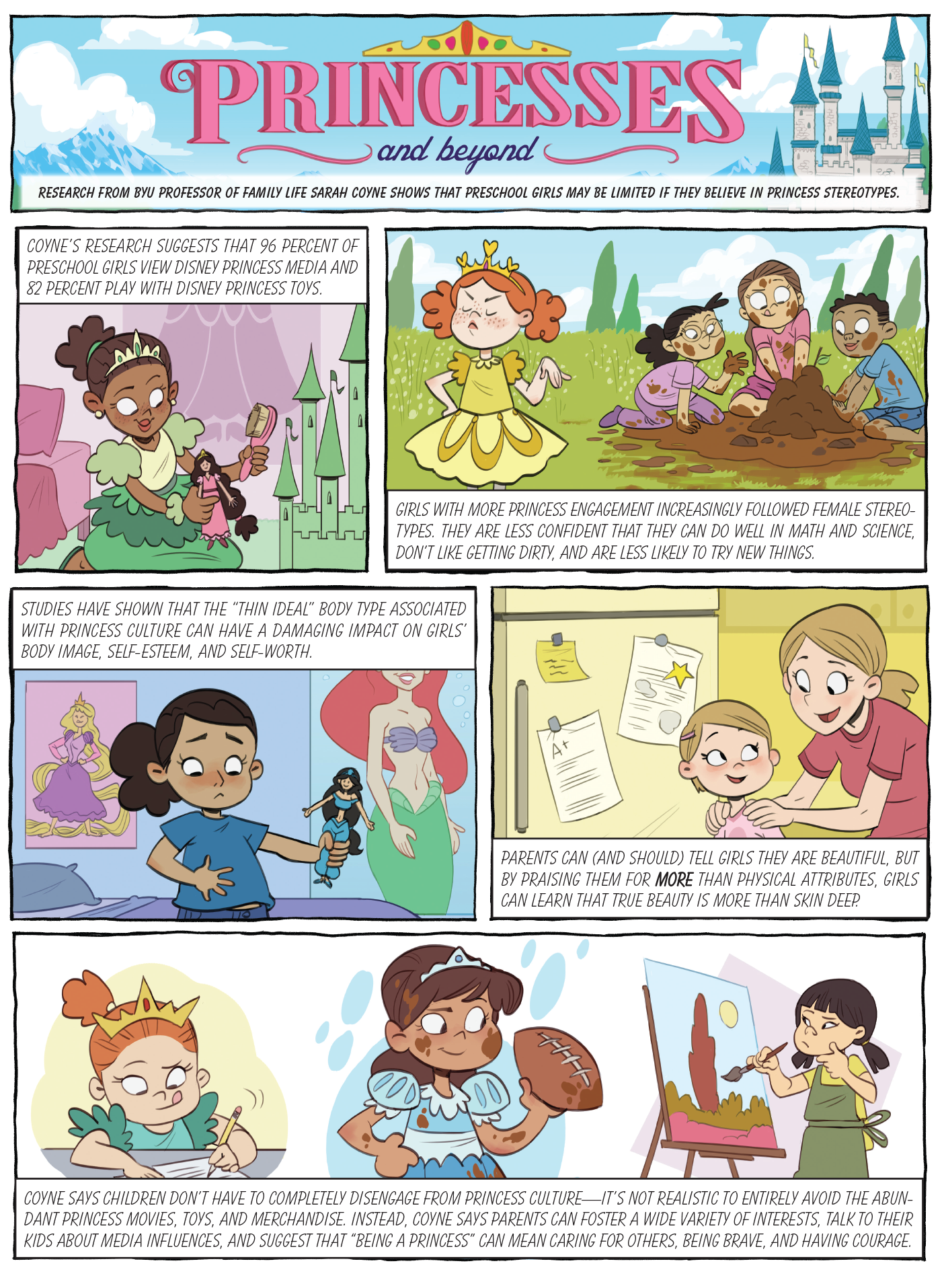
The Thin Ideal
In the media princesses typically have the same look: an impossibly tiny waist, large eyes, and lustrous long hair. In research this is called the “thin ideal.” Studies have shown that internalization of the thin ideal can have a damaging impact on girls’ body image, self-esteem, and self-worth.
We start this internalization with our very youngest girls, dressing them up as princesses and complimenting them for being “pretty.” As with superheroes and the muscular ideal, this appearance-based talk leads girls to believe that there is one correct size and shape. Is it any wonder that women tend to have so many body-image issues?
As Elder Jeffrey R. Holland said, “One would truly need a great and spacious makeup kit to compete with beauty as portrayed in media all around us.”¹⁰
One of my favorite princess movies is Brave. Merida, the main character, is an independent young princess in Scotland. Her mother is constantly telling her how a princess should behave and tries to arrange a marriage with one of three lackluster prince suitors. The three candidates decide to have an archery contest to win Merida’s hand in marriage. Merida is forced to wear a corset and to watch her fate be decided by men she barely knows.
After the three men have shot their arrows, Merida comes up, gives a royal grunt, and stretches to rip her dress apart so she can move more easily. She then pulls out a bow and arrow and says, “I am Merida, firstborn descendant of Clan DunBroch. And I’ll be shooting for my own hand!” ¹¹ She then shoots a perfect bullseye.
Here Merida is taking charge of her royal future. Yes, she was meant to become queen, but she learns that she doesn’t need others to dictate the way she looks or decide her fate. She goes on to discover her true identity—that being a princess means being herself and not some contrived princess from fairy tales long ago.
Women, love who you are. And part of that means loving your body with every blemish, stretch mark, and perceived flaw. Do not waste any more of your precious time obsessing over the way you look. Yes, we want to be healthy, but this means very different things for each person, and body acceptance may be difficult to achieve for some of us.
I believe one of Satan’s greatest weapons is to lead women to reject their bodies. Our Father in Heaven loves us for who we are—in fact, I believe He cares very little about our current dress size or how we look in a bathing suit. Remember, we are created in the image of our heavenly parents. We don’t know much about our Heavenly Mother. We don’t know what she looks like or even much about who she is as an individual. I can’t wait to meet her someday. I have so many questions for her! I do believe that my body looks like hers in a way. I want to be respectful and true to her image and to the way she must have lived her life.
Falling Asleep
In many princess stories, such as Sleeping Beauty or Snow White, the princess falls asleep and is rescued by a prince. Ladies, we are not on this earth to fall asleep!
Our Heavenly Father has much bigger plans in store for us.
He has asked us to serve our communities and our families and to mother and nurture the children in our care, whether they are our own children, nieces, nephews, or other children in our sphere of influence. He has asked us to learn and to grow.
In a talk called “How Can I Become the Woman of Whom I Dream?” President Gordon B. Hinckley taught young women:
Find purpose in your life. Choose the things you would like to do, and educate yourselves to be effective in their pursuit. . . . You are hopeful that you will marry and that all will be taken care of. In this day and time, a girl needs an education. She needs the means and skills by which to earn a living should she find herself in a situation where it becomes necessary to do so.

Study your options. Pray to the Lord earnestly for direction. Then pursue your course with resolution.
The whole gamut of human endeavor is now open to women. There is not anything that you cannot do if you will set your mind to it. You can include in the dream of the woman you would like to be a picture of one qualified to serve society and make a significant contribution to the world of which she will be a part.¹²
I resonate with these words. My family’s circumstances necessitated that I be the primary earner. This was a difficult decision, and we spent many, many nights on our knees in prayer. Many people were supportive, but others were judgmental and condescending when I started working full-time at BYU.
Proverbs 3:5–6 says: “Trust in the Lord with all thine heart; and lean not unto thine own understanding. In all thy ways acknowledge him, and he shall direct thy paths.” I believe that promise with all my heart. I am fortunate to have found a man who is my true equal, who understands, as it says in “The Family: A Proclamation to the World,” that we “are obligated to help one another as equal partners.”¹³ I trusted in the spiritual promptings we received that helped me know that I was meant to be at BYU. Because of the choices I made earlier in life and the education I felt prompted to receive, I am becoming the type of scholar that I know Heavenly Father needs me to become.
Other women’s paths may be very different than mine. Regardless of their circumstances, we need women who can speak up and speak out. President Russell M. Nelson said to the women of the Church:
My dear sisters, whatever your calling, whatever your circumstances, we need your impressions, your insights, and your inspiration. We need you to speak up and speak out in ward and stake councils. We need each married sister to speak as “a contributing and full partner” as you unite with your husband in governing your family. Married or single, you sisters possess distinctive capabilities and special intuition you have received as gifts from God. We brethren cannot duplicate your unique influence.¹⁴
Women, do not be afraid to share your experiences and your insights—especially when you are in leadership positions. The world needs your voices! We need you all. We need the single sisters, we need the mothers, we need the widows, we need the grandmas, we need the aunts, and we need the daughters. We need the women in the workplace and we need the women who stay home with their children.
Ruth L. Renlund—Elder Dale G. Renlund’s wife—said, “One thing I’ve always felt strongly about is that there’s no one way to be an LDS woman.”¹⁵ We have many roles, but we have one thing in common. We are daughters—and, I would add, princesses—of a Heavenly Father, who loves us, and we love Him.¹⁶ And He needs the women of the Church more in this time than in any other. We are not here to fall asleep.
In our princess study we asked preschool girls who their favorite princess was and why. The vast majority chose Rapunzel, likely because the movie Tangled had just come out. The no. 1 reason why they liked Rapunzel was because of the way she looked. In the entire study, there was only one girl who chose Mulan as her favorite princess. When asked why, the girl answered boldly, “Because she saves China.”
God has asked us not only to save China but to fight for and defend our brothers and sisters across the entire world. We simply cannot do this if we fall asleep and do nothing.
My little princess is my daughter, Hannah. I hope she knows that she is treasured by both of her parents and by her Father in Heaven. I hope she truly understands her royal identity and that being a princess isn’t just about dressing up in fancy dresses. I hope this becomes a core part of her identity that will help her get through the hard times that she will surely experience in her life. I hope she knows that being a princess comes with the responsibility to care for others, to be brave, and to be of good courage. Being a princess comes with the responsibility to not fall asleep but to truly do good in this world.
The Prince of Peace
After sharing several princess fantasies, I want to end with one reality. Even though we are not here to fall asleep, we will be rescued by a prince—the Prince of Peace. Our Savior Jesus Christ atoned for our sins, descending below all so that He could know exactly what we are going through. He sacrificed all so that we could live.
Christ has rescued me so many times in my life. This last year we experienced the death of a beloved niece, Nona. Watching my sister bury her only child, a princess she and her husband had so fervently wanted, was the most painful moment in my life.
I remember one day in my office feeling so sad that I couldn’t work. I shut down my computer, crawled under my desk, curled up in a little ball, and just sobbed. I felt like nothing could ever be right in the world again.
I began to pray for comfort and understanding. The Spirit filled the room and penetrated my heart so that I could barely breathe. I realized that Heavenly Father had also lost a child, and I imagined the pain He must have felt as He watched His Beloved Son on the cross. I was given an assurance that my niece, our little princess, was destined for royalty and that the bands of death were nothing compared to the “happily ever after” that she was currently experiencing.
We are each of royal birth—princesses and princes in our own right. We have the potential to have greater power and reach than the most powerful superhero portrayed in the media today. Let us not waste this precious gift. Realizing we are royal can change the very way that we see ourselves, our bodies, our families, our lives, and our destinies.
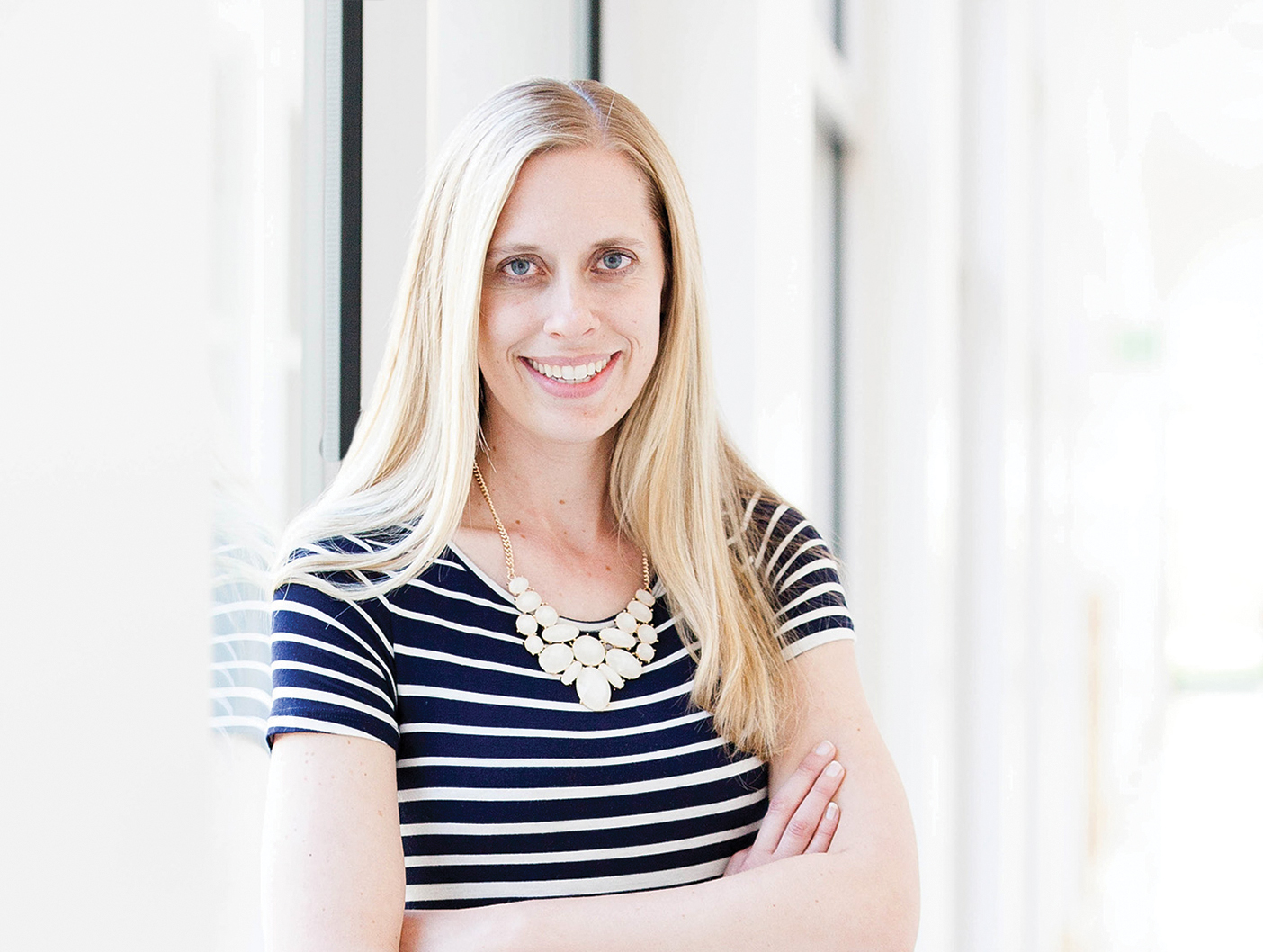
Sara M. Coyne is an associate professor of human development in the BYU School of Family Life. This article is adapted from a devotional address she gave on May 31, 2016.


